
Quantum Information Processing
Scope & Guideline
Illuminating the pathways of quantum information processing.
Introduction
Aims and Scopes
- Quantum Computation and Algorithms:
Research on algorithms designed for quantum computers, including quantum versions of classical algorithms like Grover's and Shor's algorithms, and new quantum algorithms for specific problems. - Quantum Cryptography and Security:
Studies on secure communication protocols using quantum mechanics, including quantum key distribution (QKD), quantum digital signatures, and analysis of cryptographic protocols against quantum attacks. - Quantum Information Theory:
Exploration of the theoretical underpinnings of quantum information, including entanglement measures, quantum states, and their properties, as well as the implications of quantum mechanics on information theory. - Quantum Error Correction and Fault Tolerance:
Development of methods to protect quantum information from errors due to decoherence and other disturbances, including the design of quantum error-correcting codes. - Quantum Imaging and Sensing:
Research into the application of quantum principles to improve measurement accuracy and resolution in imaging systems, including quantum-enhanced imaging techniques. - Quantum Networks and Communication:
Investigations into the architecture and protocols for quantum communication networks, including entanglement distribution and quantum repeaters. - Hybrid Quantum-Classical Systems:
Studies focusing on the integration of quantum computing with classical systems, including algorithms and protocols that leverage both quantum and classical resources. - Applications of Quantum Technologies:
Exploration of practical applications of quantum technologies in various fields, including finance, telecommunications, and computational sciences.
Trending and Emerging
- Quantum Machine Learning:
An increasing number of papers are exploring the intersection of quantum computing and machine learning, focusing on how quantum algorithms can enhance learning processes and data analysis. - Quantum Communication Protocols:
There is a growing emphasis on developing and refining quantum communication protocols, particularly in the context of secure communications and quantum networks. - Quantum Error Mitigation Techniques:
Research into methods for mitigating errors in quantum computations, particularly in noisy intermediate-scale quantum (NISQ) devices, is gaining traction as these devices become more prevalent. - Quantum Simulation:
The trend of using quantum computers to simulate complex quantum systems is on the rise, with applications ranging from materials science to quantum chemistry. - Quantum Cryptographic Protocols and Security Enhancements:
There is a notable increase in research focused on enhancing the security of quantum cryptographic protocols, including new approaches to quantum key distribution. - Entanglement-Based Applications:
Emerging applications exploiting entanglement properties for various technologies, including quantum communication and cryptography, are increasingly being reported. - Quantum Networks and Distributed Quantum Computing:
Research on the architecture and protocols for quantum networks, including entanglement distribution and quantum repeater technologies, is on the rise. - Hybrid Quantum-Classical Algorithms:
The development of algorithms that combine quantum and classical computing techniques to solve complex problems more efficiently is trending in recent publications.
Declining or Waning
- Classical Cryptography in Quantum Contexts:
Research on classical cryptographic techniques within quantum settings has decreased as the focus shifts towards purely quantum cryptographic protocols that leverage unique quantum properties. - Basic Quantum Mechanics Concepts:
Papers primarily discussing fundamental quantum mechanics principles without direct application to information processing or computation have become less common, indicating a preference for applied research. - Single-Particle Quantum Systems:
Studies focused solely on single-particle systems have waned, as more emphasis is placed on multi-particle entanglement and interactions that demonstrate complex quantum behaviors. - Theoretical Foundations without Practical Applications:
There seems to be a reduction in theoretical papers that do not propose practical implementations or applications, suggesting a trend towards more applied research in quantum technologies.
Similar Journals
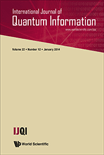
INTERNATIONAL JOURNAL OF QUANTUM INFORMATION
Advancing Knowledge in Quantum InformationINTERNATIONAL JOURNAL OF QUANTUM INFORMATION is a prominent academic journal published by World Scientific Publishing Co. Pte Ltd that serves as a critical platform for disseminating research in the rapidly evolving field of quantum information science. This journal, which has an ISSN of 0219-7499 and E-ISSN 1793-6918, covers significant advancements from 2005 to 2024, providing insights into quantum computation, quantum cryptography, and related topics that are essential for both theoretical and experimental physicists. The journal's influence is recognized in the academic community, as evidenced by its classification in the Q3 category within Physics and Astronomy (miscellaneous) as of 2023, where it ranks at #45 out of 81 with a percentile of 45. Although currently not available as an open access journal, it remains a pivotal resource for researchers and scholars aiming to stay at the forefront of quantum information research. As the field continues to grow in importance and application, the INTERNATIONAL JOURNAL OF QUANTUM INFORMATION plays a vital role in fostering innovative discoveries and promoting academic collaboration.
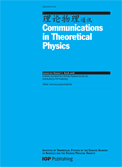
COMMUNICATIONS IN THEORETICAL PHYSICS
Fostering dialogue in the realm of theoretical physics.COMMUNICATIONS IN THEORETICAL PHYSICS is a distinguished journal published by IOP Publishing Ltd, focusing on the broad and evolving field of theoretical physics. With an ISSN of 0253-6102 and an E-ISSN of 1572-9494, this journal provides a platform for the dissemination of innovative research that contributes to the understanding of complex physical concepts. Situated in the United Kingdom, it has established itself as a pivotal resource from 1996 to 2024, achieving a commendable Q2 ranking in the category of Physics and Astronomy (miscellaneous) for 2023. With a Scopus ranking of #18 out of 81 in its category, demonstrating a 78th percentile, this journal plays a crucial role in enhancing scholarly communication among researchers, professionals, and students alike. Although it does not currently offer Open Access options, the journal's comprehensive scope and commitment to high-quality peer-reviewed research underline its significance in the scientific community, making it an essential reading for anyone engaged in theoretical physics.
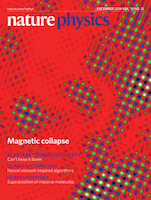
Nature Physics
Illuminating the Path of Modern Physics DiscoveriesNature Physics is a premier journal dedicated to publishing high-impact research in the realm of physics, brought to you by the esteemed NATURE PORTFOLIO. With its ISSN 1745-2473 and E-ISSN 1745-2481, this journal has established itself as a vital resource for the physics community, enjoying a remarkable Q1 quartile ranking in the Physics and Astronomy category for 2023 and securing an impressive Rank #5/243 and a 98th percentile ranking in Scopus. Since its inception in 2005, Nature Physics has become a catalyst for innovation, featuring cutting-edge research that encompasses a broad spectrum of physics disciplines. Although it operates under traditional subscription models, it maintains a commitment to accessibility through selective publications and editorial excellence. Positioned in Berlin, Germany, this journal is a must-read for researchers, professionals, and students who seek to stay at the forefront of advancements in physics.

Problems of Information Transmission
Exploring the Frontiers of Information FlowProblems of Information Transmission, an esteemed journal published by PLEIADES PUBLISHING INC, serves as a critical platform for scholarly discourse in the fields of computer networks, communications, computer science applications, and information systems. Established in 1972 and resuming publication from 2005 to 2024, this journal provides a rigorous peer-reviewed environment for researchers to present their findings, methodologies, and innovative applications. With a noteworthy impact factor and categorized as Q3 in several relevant fields in 2023, it ranks within the 30th percentile amongst its peers, indicating its established presence in the academic community. Although the journal is not open access, it remains an essential resource for professionals and students seeking to explore contemporary challenges and advancements in information transmission. For those pursuing knowledge in these dynamic areas, Problems of Information Transmission represents a significant and authoritative source of cutting-edge research and insights.
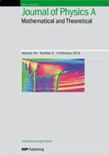
Journal of Physics A-Mathematical and Theoretical
Charting New Territories in Physics and AstronomyThe Journal of Physics A-Mathematical and Theoretical, published by IOP Publishing Ltd, is a premier peer-reviewed journal dedicated to advancing the understanding of mathematical physics, modeling, and simulation methods within the dynamic field of physics and astronomy. Established in the United Kingdom, this journal has made significant contributions over the years, maintaining a strong reputation as a Q1 and Q2 ranked journal across various categories, reflecting its influence in the scientific community. With a focus on innovative and theoretical approaches, it provides a platform for researchers, professionals, and students to disseminate their findings and engage with groundbreaking methodologies. Despite its lack of open access options, the journal's high impact factor and Scopus rankings, which place it in the top percentiles across multiple disciplines, underscore its critical role in fostering scholarly communication and collaboration in mathematical and theoretical physics. As we move through its converged years from 2007 to 2024, the Journal of Physics A continues to be a pivotal contributor to the landscape of contemporary physics, stimulating discussions and advancing knowledge in an ever-evolving realm.
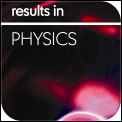
Results in Physics
Pioneering Discoveries in the World of PhysicsResults in Physics, an esteemed open-access journal published by ELSEVIER, has been a prominent platform for disseminating cutting-edge research in the field of physics since its establishment in 2011. With its ISSN 2211-3797 and E-ISSN 2211-3797, this journal proudly holds a Q2 ranking in the Physics and Astronomy category for 2023, showcasing its significance and quality within the scientific community. With a remarkable Scopus rank of #28 out of 243 in the general physics and astronomy domain, placing it within the 88th percentile, Results in Physics serves as a vital resource for researchers, professionals, and students alike, fostering a collaborative environment for the advancement of knowledge across various subfields. The journal aims to provide a rapid and unrestricted access to innovative findings, encouraging open scientific dialogue and enhancing the visibility of breakthrough research. Located in the Netherlands at RADARWEG 29, 1043 NX AMSTERDAM, Results in Physics continues to uphold its commitment to excellence and accessibility in the ever-evolving landscape of physics research.
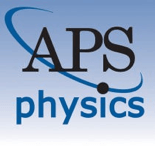
REVIEWS OF MODERN PHYSICS
Fostering Innovation in Physics and AstronomyREVIEWS OF MODERN PHYSICS, published by the American Physical Society, stands as a premier journal in the field of physics and astronomy, evidenced by its esteemed Q1 ranking in the 2023 category. With a notable ISSN of 0034-6861 and E-ISSN of 1539-0756, this journal has been a cornerstone for scholarly excellence since its inception in 1929. Operating from the heart of the United States at One Physics Eklipse, College Park, MD 20740-3844, REVIEWS OF MODERN PHYSICS enjoys a significant reputation, holding a top rank of #1 out of 243 in the Scopus rankings for General Physics and Astronomy, and securing its place in the 99th percentile. While it does not provide open access, the journal remains a critical resource for researchers and students alike, offering comprehensive reviews and breakthroughs that drive innovation and understanding in modern physics. As it converges towards its centennial year in 2024, the journal continues to foster significant academic discourse, making it an invaluable platform for the dissemination of pioneering ideas and research outcomes.
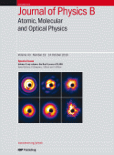
JOURNAL OF PHYSICS B-ATOMIC MOLECULAR AND OPTICAL PHYSICS
Showcasing Cutting-Edge Research in Optical PhenomenaJOURNAL OF PHYSICS B-ATOMIC MOLECULAR AND OPTICAL PHYSICS, published by IOP Publishing Ltd, stands as a key platform within the fields of atomic, molecular, and optical physics. With an impressive history spanning from 1988 to 2024, this journal is recognized for its high-quality research contributions, holding a Q2 ranking in both Atomic and Molecular Physics and Optics, and Condensed Matter Physics, as of 2023. While not an open-access journal, it continues to attract a broad readership and submissions due to its commitment to disseminating knowledge that is at the forefront of contemporary physics research. The journal's ISSN 0953-4075 and E-ISSN 1361-6455 signal its accessibility and relevance in academic discourse. As researchers, professionals, and students delve into the intricate phenomena of quantum mechanics and photonics, they will find pivotal studies and insights within these pages, reinforcing JOURNAL OF PHYSICS B's stature as an esteemed resource in the ever-evolving landscape of physics.

PHYSICAL REVIEW LETTERS
Pioneering High-Impact Research in PhysicsPhysical Review Letters, published by the American Physical Society, is a premier journal in the field of Physics and Astronomy renowned for its rapid dissemination of high-impact research findings. With a distinguished history dating back to 1958 and an impressive ranking of #13 out of 243 in the general physics category, it stands proudly within the Q1 quartile, placing it in the top 6% of journals in its field. The journal focuses on brief reports of significant fundamental research across all areas of physics, making it an essential resource for researchers, professionals, and students seeking to stay at the forefront of developments in their field. Although Physical Review Letters does not offer open access options, its rigorous peer-review process ensures a high standard of quality and relevance in its published articles. With an unwavering commitment to advancing the understanding of physical science, this journal is indispensable for those looking to make a genuine impact in their research endeavors.

Physical Review Research
Unlocking the universe through open access research.Physical Review Research, published by the American Physical Society, is a premier open access journal dedicated to the dissemination of high-quality research across all areas of physics and astronomy. Since its inception in 2019, this journal has quickly established itself as a vital platform for researchers, achieving a prestigious Q1 ranking in the dynamics of Physics and Astronomy (miscellaneous) and holding a commendable position in the Scopus Rankings with a rank of #29 out of 243, placing it in the 88th percentile. With the commitment to fostering scientific collaboration and transparency, Physical Review Research offers unrestricted access to valuable findings, enabling researchers, professionals, and students alike to engage with cutting-edge contributions in general physics and astronomy. As it converges into its forthcoming years of publication, the journal remains dedicated to showcasing rigorous research and innovative ideas that drive the field forward.